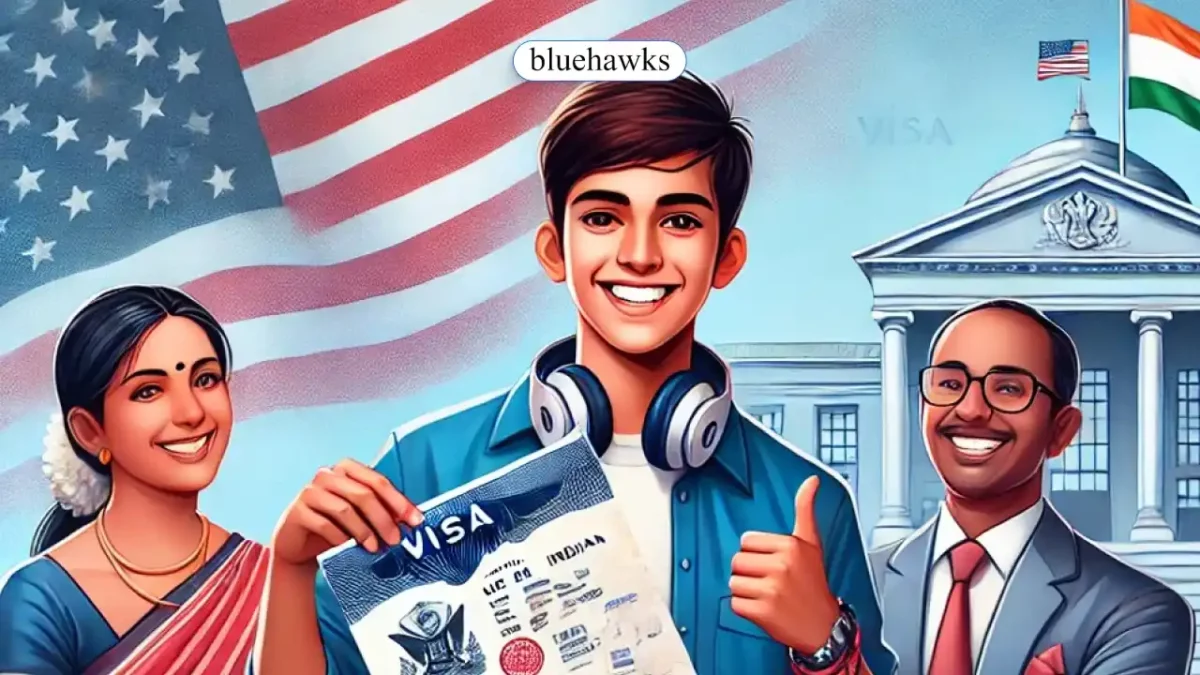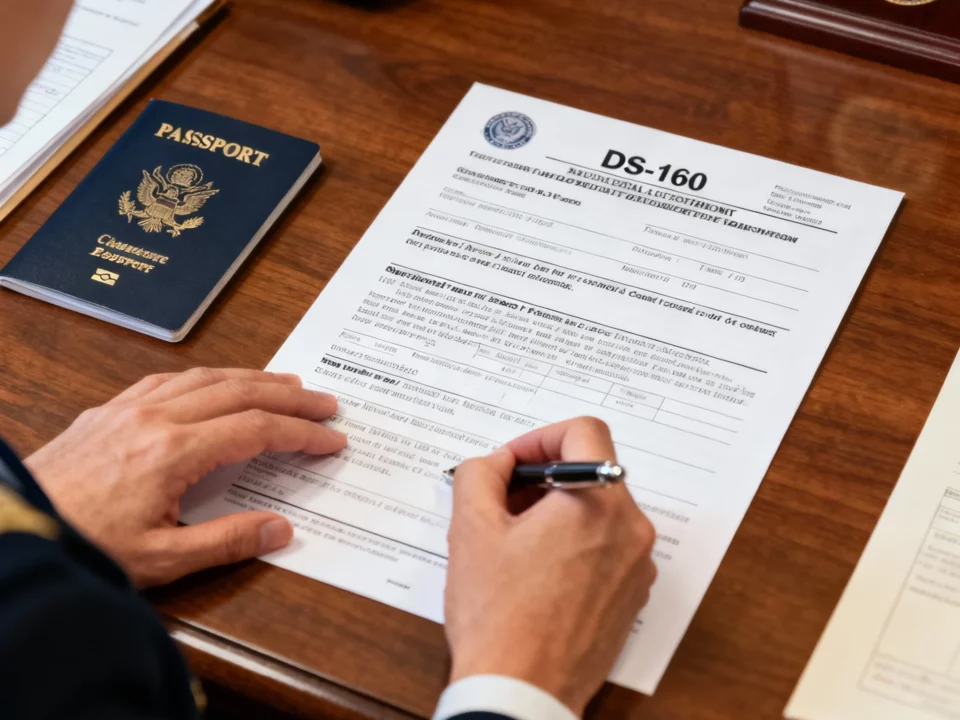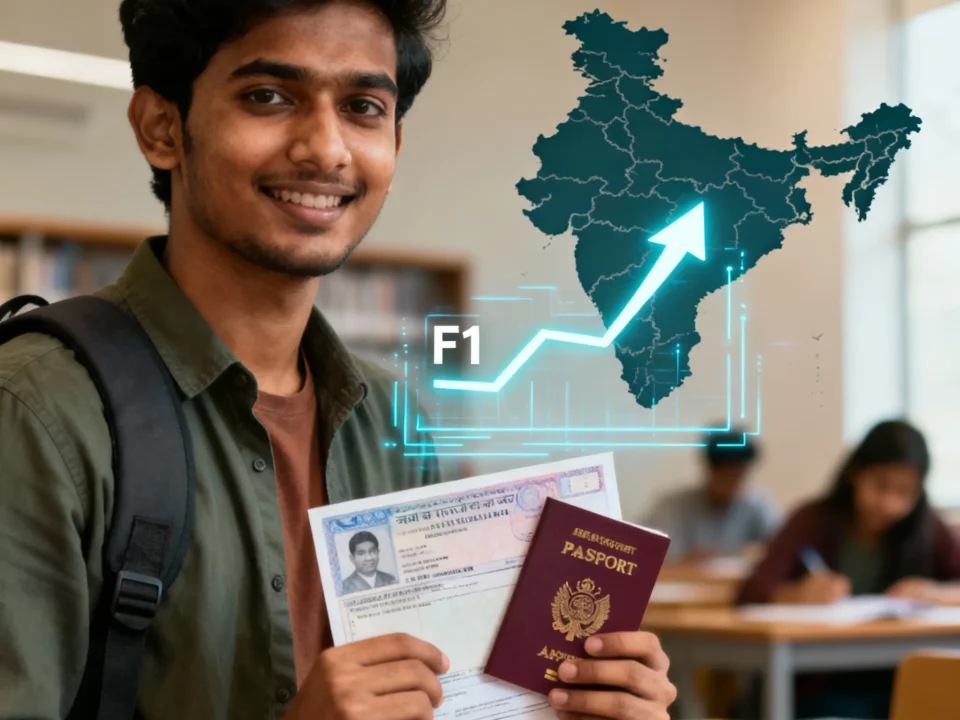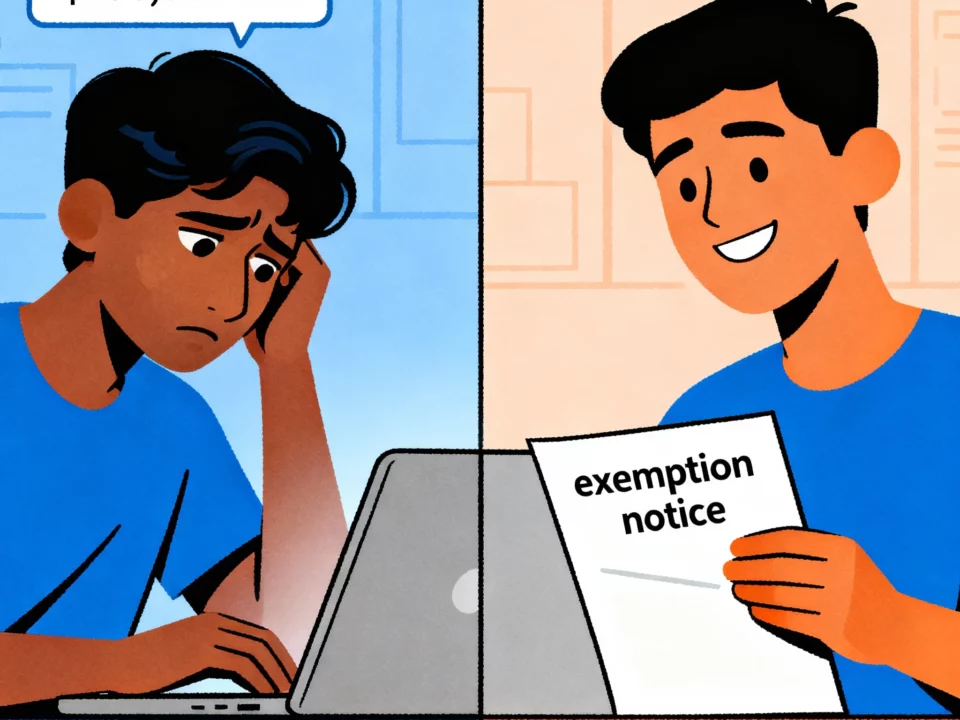Refusal Under Section 214(b): Why It Happens

Refusal Under Section 214(b): Why It Happens
Estimated reading time: 6 minutes
If you’re reading this, chances are you’ve either faced a Refusal Under Section 214(b) or are worried about your F1 visa application. Let’s be honest—getting your U.S. visa rejected feels like a punch in the gut. And if it’s happened more than once, the frustration can be enough to make you rethink your entire study abroad plan.
Table of contents
What makes it worse is the toll it takes on your family. Many students, like Riya from Kochi, feel the pressure from their parents, who invest emotionally and financially in their child’s future. Riya faced two F1 visa refusals before reaching out to Bluehawks EduAbroad. Her first rejection occurred because she gave a vague explanation of her current duties as a student, which didn’t align with her proposed education in the U.S. Her second rejection happened when the visa officer spotted inconsistencies between her DS-160 form and her interview responses, all due to her local agent’s carelessness.
If you’re in a similar situation, don’t lose hope. In this blog, we’ll explain what a Refusal Under Section 214(b) means, why it happens, and how students like Riya overcame it to achieve their dreams of studying in the U.S.
What Is a Refusal Under Section 214(b)?
To begin with, Section 214(b) of the U.S. Immigration and Nationality Act (INA) assumes that all visa applicants intend to immigrate permanently unless they can prove otherwise. In simple terms, it’s up to you to convince the visa officer that you’ll return to your home country after completing your studies.
This requires you to demonstrate:
- Strong ties to your home country, such as family, property, or a job that will bring you back.
- A clear academic and career plan, showing that studying in the U.S. is a logical next step for your goals.
- Adequate financial resources, proving you can fund your education and living expenses without being a burden on the U.S. economy.
Failing to address these points often leads to a Refusal Under Section 214(b).
Why Do Students Face Refusal Under Section 214(b)?
Now, let’s address the most common reasons why students face a Refusal Under Section 214(b). Many students make these mistakes because they don’t understand the process or rely on local agents who don’t take their cases seriously.
Here’s why rejections happen:
- Incomplete or Incorrect DS-160 Forms:
The DS-160 is the backbone of your visa application. Errors or inconsistencies—like conflicting information about financial sponsors—can immediately raise red flags. - Weak Ties to the Home Country:
If you fail to provide strong evidence that you’ll return after your studies, the officer may doubt your intentions. This often happens when students can’t explain their family ties, property ownership, or career plans back home. - Poor Interview Preparation:
Giving vague or generic answers during the interview can hurt your case. Visa officers are trained to identify insincere or rehearsed responses. - Overreliance on Local Agents:
Many students trust local agents who use a one-size-fits-all approach. These agents often fill out DS-160 forms carelessly and provide canned interview answers that don’t align with the student’s profile.
Take Arjun from Khammam, for instance. He faced two rejections because his agent submitted a DS-160 form with errors about his financial sponsor. On his second attempt, the same agent gave him generic answers for the interview, which didn’t reflect his unique case. Frustrated and hopeless, Arjun researched online and found Bluehawks EduAbroad, where we helped him turn things around.
How to Check the Reasons for a Refusal Under Section 214(b)
Many students and parents struggle to understand why their visa was rejected. While the refusal letter doesn’t provide specific details, it’s essential to review your DS-160 form and reflect on your interview responses. If you worked with an agent, verify whether they submitted accurate information. At Bluehawks EduAbroad, we thoroughly analyze each case to identify what went wrong and how to fix it.
Additionally, keep in mind that the U.S. Embassy retains records of visa applications and rejections indefinitely. When you reapply, the visa officer can review your previous attempts, so it’s crucial to address the issues that led to your refusal.
How Riya from Kochi Overcame Her Refusals
Riya’s first refusal happened because she couldn’t clearly explain her current duties as a student, making it seem like her U.S. education plans weren’t well thought out. Her second refusal occurred when the visa officer spotted inconsistencies between her DS-160 form and her interview responses. These errors were the result of her agent’s carelessness.
Feeling hopeless, Riya and her family researched online and found Bluehawks EduAbroad. Here’s how we helped her:
- Expert DS-160 Preparation by U.S. Immigration Attorneys
Unlike local agents, our team of U.S. immigration attorneys meticulously reviewed Riya’s case. We prepared a flawless DS-160 form, ensuring that every detail—from her financial sponsors to her academic goals—was accurate and consistent. - Interview Coaching with Ex Visa Officers
Riya worked with former U.S. visa officers who conducted mock interviews based on her DS-160 form. These sessions helped her craft clear, genuine responses that aligned with her profile. - Fully Digital Services
Riya and her parents didn’t need to leave their home until the visa interview. From document submission to interview preparation, everything was handled online. This streamlined, transparent process was a stark contrast to the verbal promises and inefficiencies of her previous agent.
On her third attempt, Riya’s visa was approved, and her family was overjoyed. Her father admitted, “We finally understood the difference between professional guidance and what we had before.”
How to Overcome a Refusal Under Section 214(b)
If you’ve faced a Refusal Under Section 214(b), don’t give up. Here’s how to move forward:
- Fix Mistakes in Your DS-160 Form:
Ensure all information is accurate and aligned with your documents and interview answers. - Strengthen Your Ties to Your Home Country:
Provide clear evidence of property, family responsibilities, or job offers. - Prepare for the Interview with Experts:
Don’t rely on memorized answers. Work with professionals who can help you present genuine, tailored responses. - Choose Professional Guidance:
Avoid local agents who use outdated methods. Trust experts like Bluehawks EduAbroad, who bring knowledge, experience, and intellectual capacity to every case
Final Thoughts: Why Bluehawks EduAbroad is the Right Choice
A Refusal Under Section 214(b) is a setback, but it doesn’t define your journey. At Bluehawks EduAbroad, we’ve helped countless students rebuild their applications and achieve their dreams.
Our fully digital services, expert-driven approach, and commitment to excellence make us the best choice for students who are serious about their future. Don’t let rejection hold you back—reach out to us today and take the first step toward turning your dream into a reality.



